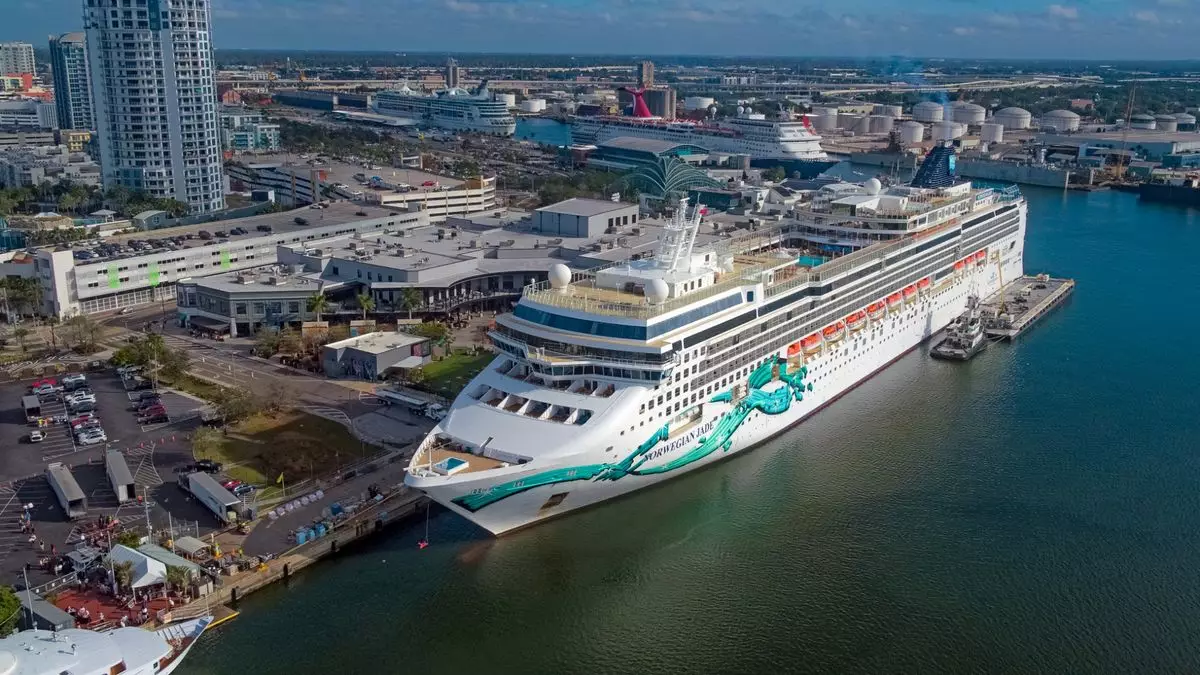The travel industry, particularly the cruise sector, is notorious for its resilience and adaptability, qualities that come into sharp focus during extreme weather events. With the anticipated approach of Hurricane Milton, many cruise lines have proactively altered their Caribbean and Bermuda itineraries to ensure the safety of their passengers and crews. As the storm, projected to escalate to a Category 5 hurricane, threatens the west coast of Florida, several key adjustments highlight the ongoing responses from cruise companies to changing weather conditions.
Hurricane Milton’s trajectory is causing significant concern along Florida’s Gulf Coast and other regions in the Caribbean. As the storm is expected to reach landfall on Wednesday night, cruise lines have preemptively shifted their operations to avoid the storm’s path. The chaos of weather-related disruptions has led to announcements from multiple cruise operators detailing changes to their schedules. For instance, the Carnival Pride, which was set to embark on a seven-day journey to Bermuda from Baltimore, will now arrive a day earlier than planned. This adjustment comes with the reassurance that the cruise will still spend a full three days at the islands despite the obstacles posed by the hurricane.
In addition to Carnival’s swift action, other ships are undergoing similar modifications. The Grandeur of the Seas, originally slated for a Western Caribbean route, will now redirect its journey to the Eastern Caribbean, with a scheduled stop in Nassau on October 10. Unsurprisingly, changes are not limited to Carnival Cruises; Royal Caribbean’s Independence of the Seas is opting for a stop in Puerto Plata, Dominican Republic instead of the usual Cozumel on its upcoming Western Caribbean voyage.
The breadth of disruptions extends beyond a single cruise line. The Symphony of the Seas, part of Royal Caribbean’s fleet, is also adjusting its itinerary, skipping the popular destinations of Port Canaveral and CocoaCay in favor of safer ports like Puerto Plata and Labadee, Haiti. The ripple effect of Hurricane Milton is resulting in various popular ports of call being momentarily sidelined, illustrating the delicate balance cruise lines must maintain between customer expectations and safety protocols.
The Wonder of the Seas’ upcoming schedule demonstrates this need for flexibility as well. Originally planning to make a stop at Cozumel, it will now switch its call to Falmouth, Jamaica, demonstrating how cruise operators are redrawing the maps in real-time as weather patterns evolve. Even shorter cruises, like the four-day cruise of Utopia of the Seas, are shifting their call sequence, opting for stops at Perfect Day at CocoCay and Nassau while bypassing other destinations.
Guests booked on these trips are given varying degrees of notice and alternative arrangements as cruise lines strive to keep passengers informed in what can often feel like an unpredictable environment. Guests must adapt not only to changing schedules but significant shifts in their anticipated vacation experiences.
Even as many cruise companies navigate through the challenges posed by Hurricane Milton, some operators, like Norwegian Cruise Line, report no current ships in the storm’s immediate vicinity, illustrating a critical aspect of disaster preparedness within the industry. However, the need for vigilance remains paramount. MSC Cruises has also acknowledged the storm’s potential impact, working on adjusting its itineraries and promising updates soon.
The industry’s response to Hurricane Milton serves as a case study in crisis management. Weather events of this magnitude prompt extensive examination and revisions of schedules, prompting airlines and cruise companies alike to recalibrate their operations. It begs a broader question about the sustainability of cruise travel in hurricane-prone regions, along with pondering the long-term effects such disruptions can have on customer loyalty and industry profit margins.
As Hurricane Milton approaches, the adjustment of cruise itineraries reminds us of the inherent unpredictability in travel, especially in regions susceptible to extreme weather. For cruise lines, the ability to pivot quickly is essential—not only for safeguarding those onboard but also for maintaining operational integrity in an industry frequently challenged by the forces of nature. As storm forecasts evolve and passenger expectations remain high, the discourses surrounding safety, adaptability, and transparency will undoubtedly continue to shape the future of cruise travel in the Caribbean and beyond.


Leave a Reply